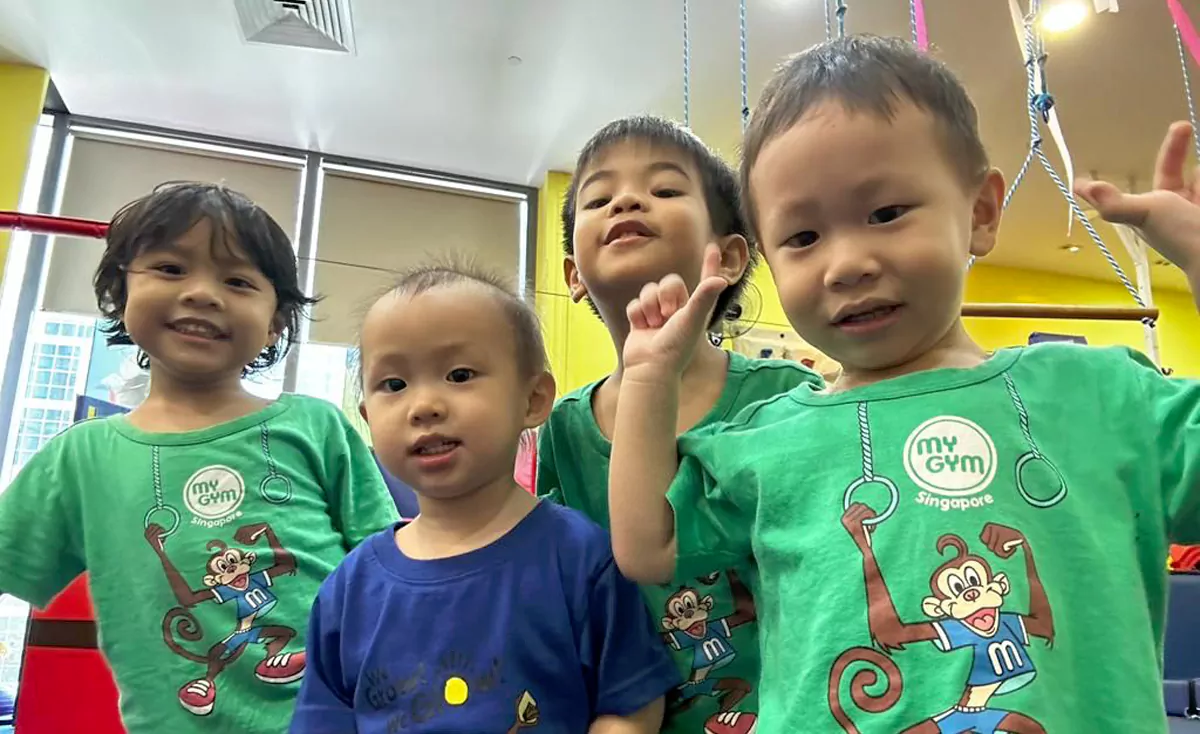How You Can Help Your Toddler Make Lifelong Friends
Do you want to make it easier for your child to play with others? Talk fearlessly in front of people? Find making friends easy? Or help her to overcome overwhelming social situations? As a parent, there are few tasks that are more frustrating than helping your child acquire the social skills to help her feel confident in tackling social encounters.
If this is the situation you find yourself in, don’t worry. You have come to the right place to learn how to easily overcome the challenge. Fortunately, there are some tried and tested ways to help develop your child’s social skills and watch her build positive relationships with peers.
By the end of this blog, you will be ready to kickstart your efforts and be on the road to bringing your toddler up to speed with strategies that will help her grow up to become a complete human being.
However, the first thing to remember is to try breaking the social skills development process into small, easy and manageable steps. Practice them through role-playing exercises and plenty of encouragement for each goal your child reaches.
This approach will help your toddler feel more comfortable and confident in learning how to build positive relationships with peers. So let’s begin this exciting journey together!
Being able to sense emotions
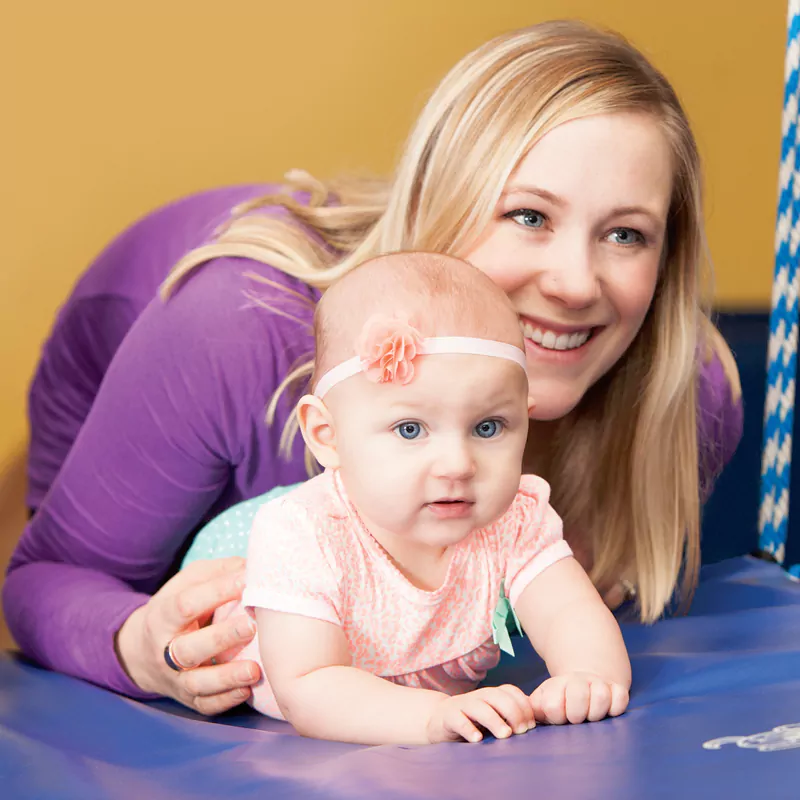
Understanding and sensing emotions is essential to a child’s social development process. This factor also significantly affects your child’s ability to connect and interact with others effectively. Research shows that young children and toddlers who can recognize emotions and express them appropriately tend to have better social skills and are more likely to develop and build positive relationships with peers.
It is essential to note that emotions are not always pleasant, and sometimes feeling sad, angry, or frustrated is okay. This is why, it becomes crucial to make your child understand that all emotions are valid and that she can express them in a healthy way.
Helping your child learn about the “five feelings” — happiness, sadness, anger, fear, and love, can make a huge difference as this will be helpful for teaching what empathy is and how it can help understand others.
Reading books or watching movies exploring strong emotional themes and characters together can help your child develop emotional intelligence. These stories can take your toddler to a safe space to explore her feelings and learn about different emotions in a controlled environment, in this case, your home and with you!
As a parent, it is essential to model healthy emotional expression and communication. When we can openly express our emotions in a healthy way, children learn that it is okay to express their feelings too.
Being able to recognize and understand emotions can help your child develop vital social skills that will serve her well throughout her life. By acknowledging all emotions as valid and providing opportunities for your child to explore and express her real feelings, you can support her emotional development and help her connect better and develop healthy relationships with others.
It is ‘fine’ to ask for help
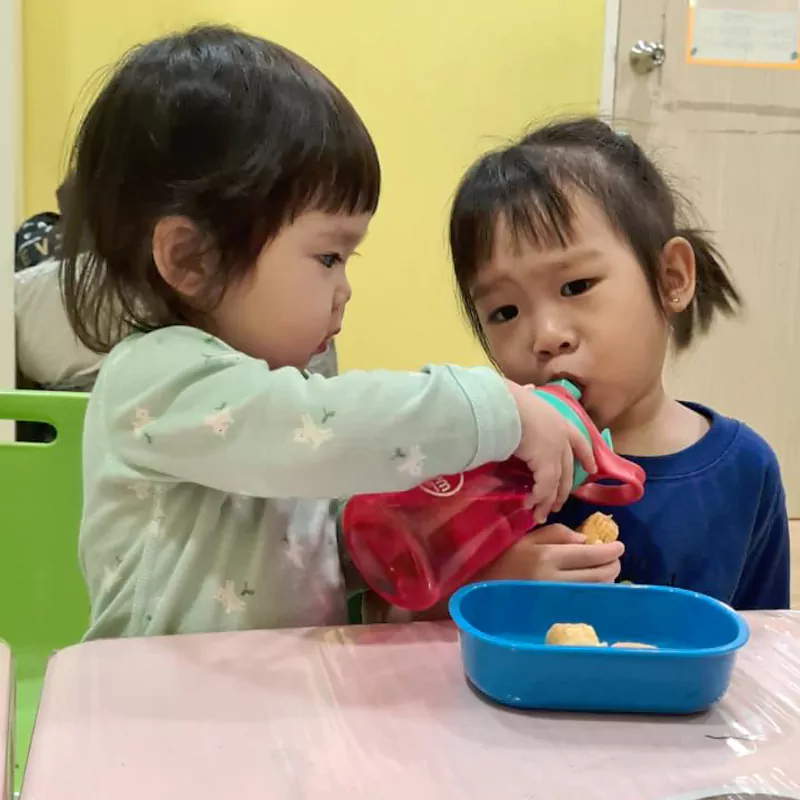
Improving social skills in toddlers is a critical part of their development, as it sets the foundation for their future interactions with others. One effective strategy for enhancing their social skills is teaching them how to ask for help when they need it in different social encounters and situations. The best time to begin the process is during early childhood relationships with parents and caregivers.
By teaching how to ask for help at an early age, you equip your toddler with a valuable tool to navigate challenging social scenarios. Asking for help when stuck on some difficult task, such as deciding what game to play, or what book character to role-play, will help her avoid feeling embarrassed or overwhelmed.
However, it is essential to teach your toddler not only how to ask for help but also how to play along and study alongside her peers. By learning these skills when forming early childhood relationships, your toddler develops the ability to collaborate, communicate, and problem-solve effectively with others later on in her life.
There are various ways open to you to teach your toddler these skills. One effective approach is when your child is participating in toddler playgroup activities, through play-based learning, such as role-playing social scenarios or encouraging cooperative play with her peers. You can also model the behaviour that you want to see in your toddler by showing her how to ask for help, praising her efforts, and demonstrating how to play along with her peers.
By investing your time in the social development of your child, you will help her grow up to become a confident, empathetic, and socially competent individual.
More opportunities for more social interaction
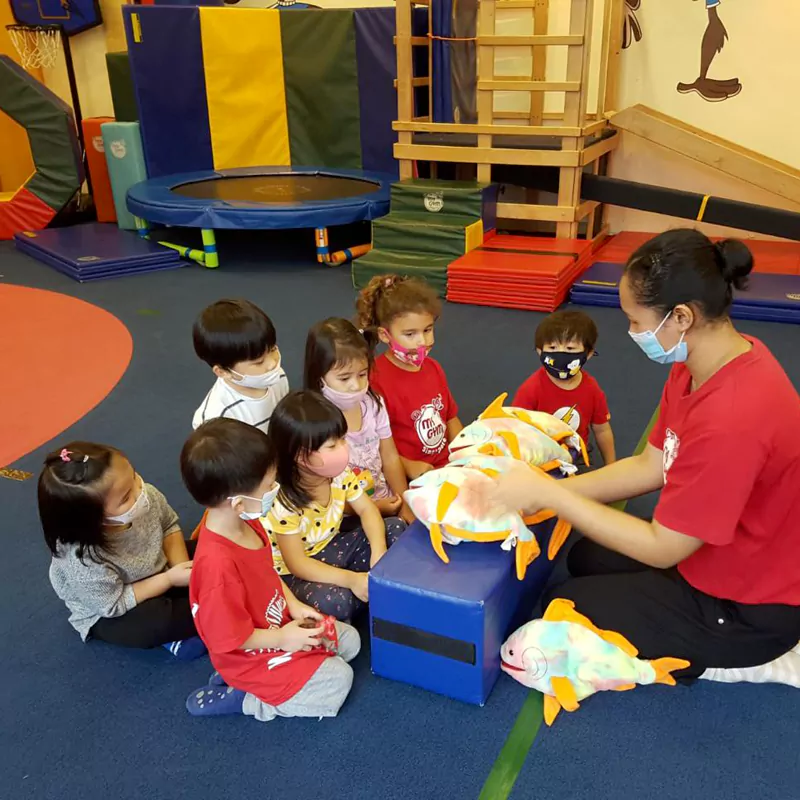
Going out of your way and creating social skill activities for toddlers is essential for both your child and you, as it allows for the development of meaningful connections and the exchange of ideas and experiences.
However, most people find it challenging to know where to start social skill activities for toddlers. One way to overcome this impasse is by joining local parent groups or organizations that share your interests. This can include anything from sports teams, book clubs, or community service groups.
By joining these organizations, you can meet other parents who share similar values and passions, which can lead to more meaningful connections and opportunities for the social exchange of ideas and resolve challenges you might encounter in future.
Another way to connect with other parents is through social media platforms or online parenting communities. These groups provide a platform for parents to connect, share experiences, and discuss parenting challenges. This can be especially beneficial for parents who may not have access to local parent groups as they are new to the place or who have busy schedules that make it difficult to attend in-person meetings.
Engaging with other adults can provide your toddler with valuable role-modelling experiences that can help shape her development. By connecting with parents who have similar interests, you and your child can learn from their experiences and perspectives, broadening your horizons and encouraging you to explore and discover new interests.
It is also important to be sensitive to your child’s needs. This means creating a safe and inclusive environment where your child will feel comfortable expressing herself and building meaningful connections with others.
This can be achieved by promoting positive communication, encouraging active listening, and fostering a sense of community and belonging. The aim is to create a supportive space you can access, and connect and foster personal growth and development.
4. Widening your own social circle
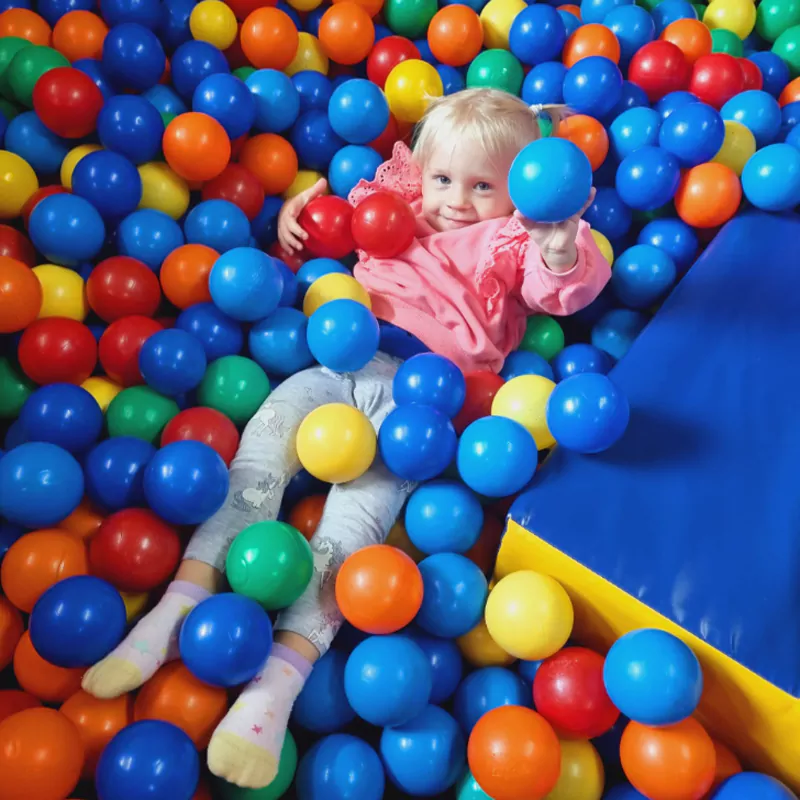
Widening a social circle is not just important for toddlers, but also for adults who want to broaden their social network. Here are some tips for promoting positive peer-social interactions:
Arranging playdates:
Inviting neighbourhood children to your house for a party can help your child build a toddler social circle of her own. This way, your child can spend more time with others in the same age group without feeling left out or overwhelmed. It will also set the stage for future friendships to form and nurture.
Join clubs or groups:
Consider joining clubs or groups that interest you, such as a book club, sports team, or hobby group. This is a great way to meet parents who share similar interests and hobbies.
Attend social events:
Attend social events hosted by schools, at work, or by a community. Encourage holding parties, and joining a fundraiser and community events.
Be approachable:
Smile and be friendly to others. If you’re at a social event, introduce yourself and strike up a conversation. It’s important to make the first move in order to build new relationships.
Host events:
Host events at your home, such as a dinner party or game night. This is a great way to bring people together and build your own social circle.
Attend classes or workshops:
Sign up for classes or workshops that interest you, such as cooking, painting, or music and dance. This is a great way to meet people who share similar interests.
Remember, everything takes time, and patience is a great virtue as building a social circle takes time and effort. Be persistent though, and be open to new experiences and people. With time, you’ll build a strong network of friends who will support and enrich your life.
5. Participate in exciting new activities
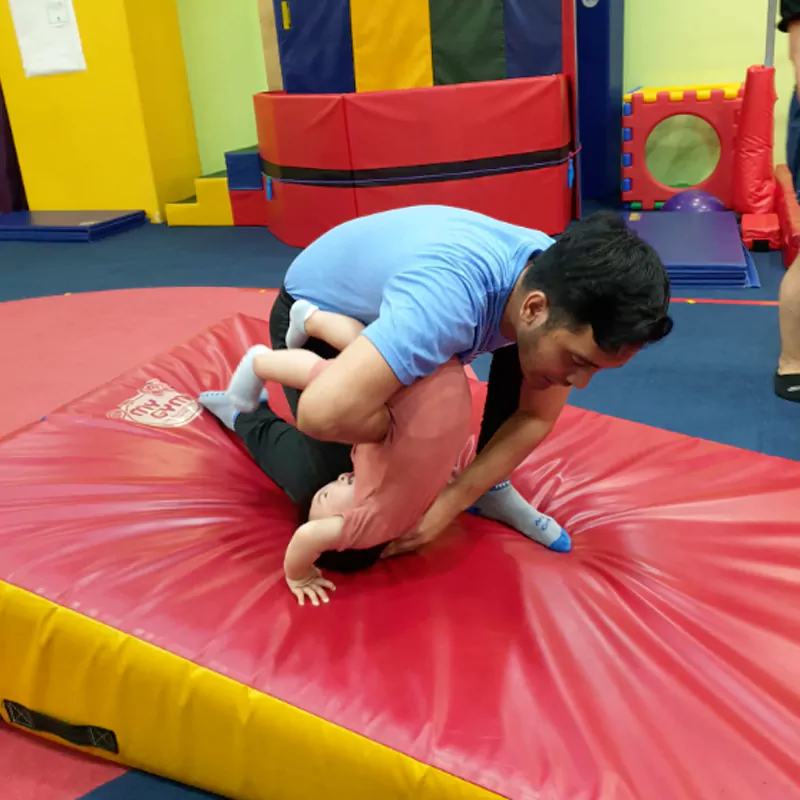
Get out more often and encourage your child to help you discover exciting new activities to participate in. This will help develop your toddler’s social skills and explore new interests. By promoting positive peer social interactions you will also provide an opportunity for your child to meet and make new friends and widen the social circle beyond her normal exposure.
Extracurricular activities such as sports, music, drama, or dance offer a chance for your child to engage in activities that she is passionate about while also building teamwork and leadership skills. These activities can also teach the importance of time management, dedication, and hard work.
By promoting positive peer social interactions, you and your toddler will develop a sense of camaraderie with others who share similar interests. This can boost your child’s confidence and self-esteem, and provide a supportive network of peers who can help her navigate the challenges of growing up.
It will be very important to encourage your child to explore a wider range of activities and interests to discover her true passion and talent. Help her develop a well-rounded personality and enhance your child’s overall development. Additionally, by engaging in activities outside of a home environment, your child can learn to balance her social life, which is an important skill that will serve her well throughout her life.
By providing your toddler with opportunities to explore her interests and make new friends, you can help her grow into a well-rounded and successful adult.
6. Empathy improves social skills
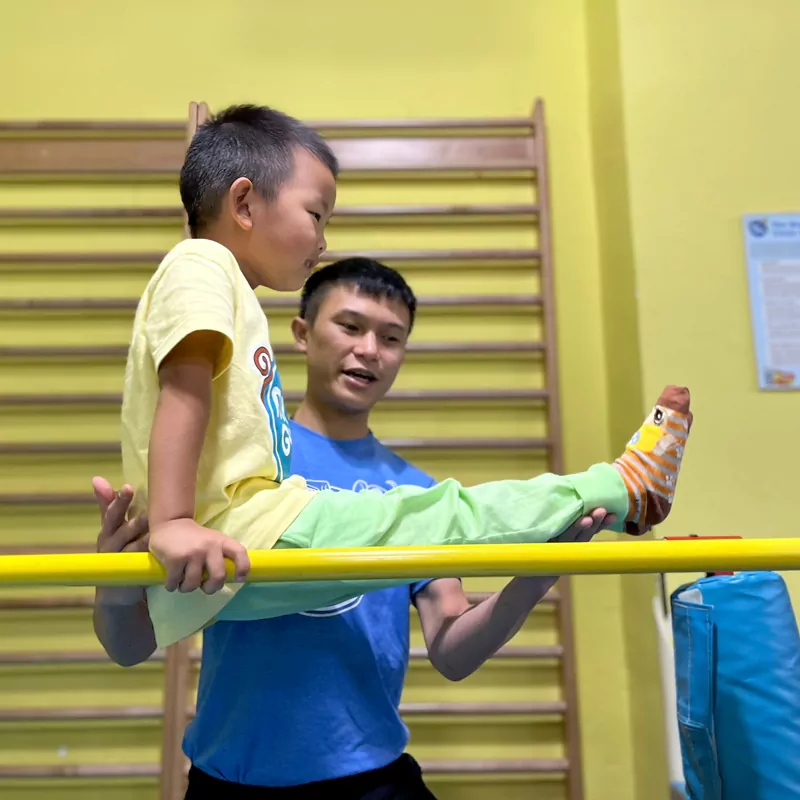
You know what it feels like to be different or when you are frequently misunderstood. It may happen to your child too, so be alert and notice whenever they may need help understanding something or to do something. Have patience and listen to them.
Empathy is a critical skill that can significantly enhance one’s social skills, leading to deeper understanding of relationships with peers, establishing effective communication, and improving overall well-being. Empathy involves putting oneself in someone else’s shoes, understanding their feelings and perspectives, and responding in a way that shows genuine concern.
One of the most significant benefits of empathy is that it enables clearer understanding of relationships with peers, and connects with others on a deeper level. When you relate to someone’s experiences, you establish trust and build a stronger rapport with them. This can be especially helpful in situations where conflict or misunderstandings arise, as empathy can help us approach these situations with greater compassion.
When it comes to children, empathy is especially important. Children are still developing their social skills and learning how to interact with others effectively. By demonstrating empathy towards your toddler, you can help her feel understood, valued, and supported. This can help to build your child’s self-esteem and confidence, as well as apply what she has learned when interacting with peers.
To improve your own empathy skills, start by actively listening to others and seeking to understand their perspectives. Pay attention to nonverbal cues such as facial expressions and body language, which can provide valuable insights into someone’s emotions. The easiest way to find out is to imagine how you would feel in their situation.
When interacting with children, be patient and take the time to explain things clearly. Use simple words and small sentences and answer questions calmly. Avoid talking down to children or dismissing their concerns. Instead, try to validate their feelings and provide support and guidance as needed.
Social skills are essential for building and maintaining healthy relationships throughout one’s life. As a parent, you play a critical role in helping your child develop these skills. Developing empathy builds stronger relationships and creates a more compassionate and understanding world.
The most effective strategy is to model good social behaviour for your child. Children learn by example, so be sure to demonstrate positive social skills in your interactions with others. This includes listening actively, showing empathy, and being respectful.
Happy socialising!
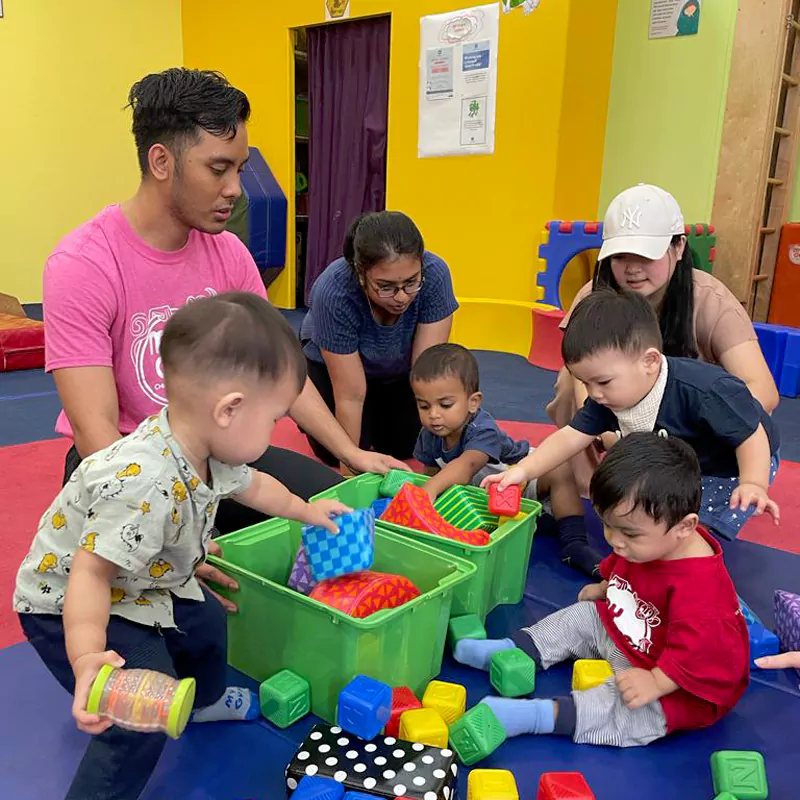
Teaching your child to recognize and manage her emotions is also essential for developing social skills. Encourage your child to express her feelings in a healthy way and help her learn to manage emotions when she feels upset or frustrated.
You can help your child develop her communication skills by encouraging her to express herself clearly and respectfully. Teach your child to use “I” statements instead of using blaming or accusing language, and to actively listen to others.
Finally, it’s essential to help your child build self-confidence and self-esteem. When children feel good about themselves, they are more likely to engage positively with others. Encourage your child to try new things and celebrate her successes, no matter how small they might turn out to be.
While there are many strategies you could consider, begin with these six strategies, and add more as you go along. You will progressively begin to help your child develop the social skills she needs to make lifelong friends.
Happy socialising!
About My Gym
My Gym involves children in dynamic games, physical activity and movement that help in building neural networks in the brain. Customizing its enrichment programs and workshops makes it easier for children to acquire intellectual skills, navigate complex social situations, and nurture emotional development.
Please visit any of our centres to learn more about how My Gym supports “whole-child development” through bespoke physical activities. Choose a day when you will be relatively free and come over with your child in tow. Your child could be an infant (as young as 6 months), a toddler or a preschooler, age is not a bar for enrolling.
My Gym has perfected the art of physical development in early childhood, help a child improve her gross and fine motor skills. It has specially designed programs that will lay a firm foundation for personal, academic and future growth by involving your child in age-appropriate structured and unstructured physical activities and developing thinking and problem-solving skills.
Please note: My Gym classrooms are thoroughly sanitized every day — the tables, the chairs, the children’s activity stations and everything else the child might touch is made safe and clean. Please wear a mask, wash your hands frequently, and practice social distancing.


